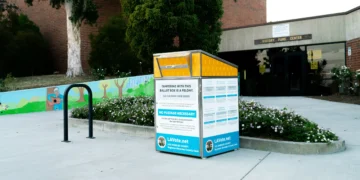The controversial Right of First Refusal (ROFR) legislation is back on the table in Wisconsin—this time dressed up with a new name: the Wisconsin Energy Reform Act (WERA). But critics say the core idea hasn’t changed, and neither have its problems.
Previously shelved after a wave of backlash, ROFR legislation sought to give Wisconsin’s three incumbent utility companies exclusive rights to build new energy transmission projects—blocking out-of-state competitors and stifling market competition. WERA attempts to repackage that same protectionist policy, hiding it behind minor energy reforms.
Senator Steve Nass (R–Whitewater) didn’t mince words, calling WERA “anti-competitive, anti-consumer, and dripping in the gravy of crony capitalism.”
He accused Assembly Speaker Robin Vos and Senate Majority Leader Devin LeMahieu of pushing the bill under pressure from powerful utility lobbyists, despite opposition from conservative legislators.
According to Nass and other critics, WERA still restricts competition by creating a de facto monopoly for Wisconsin’s dominant energy firms, pushing out-of-state companies into subcontractor roles. That’s not reform—it’s protectionism.
Supporters, including some Democrats, argue the bill protects local jobs. But opposition groups say the real driver is millions in lobbying from Wisconsin’s energy monopolies.
Conservatives warn the bill likely violates the Constitution’s Dormant Commerce Clause, which bans states from discriminating against interstate commerce.
Studies show that competitive bidding slashes costs by up to 37%, according to the MacIver Institute. ROFR/WERA would eliminate that competition, despite claims it could save ratepayers $1 billion over 40 years—a figure critics dismiss as deceptive.
While Democrat support hinges on job protection rhetoric, Republican backing appears fueled by political contributions and lobbying ties. Senator Nass warned that passing WERA would be a “billion-dollar mistake” for Wisconsin consumers and a betrayal of conservative free-market values.































